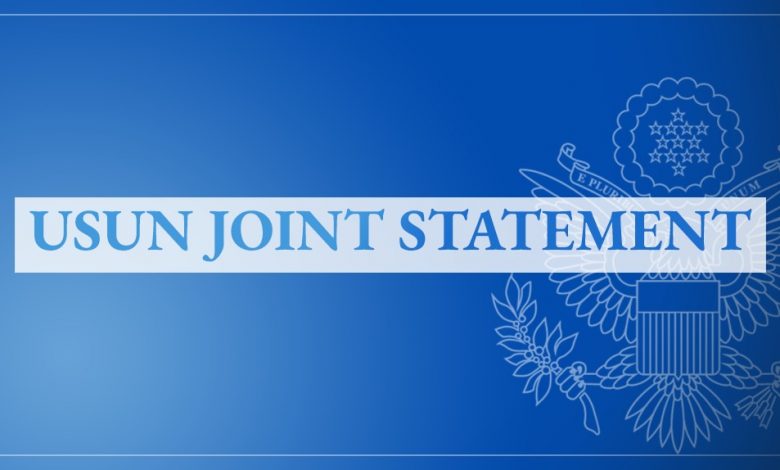CSW Afghanistan Joint Statement – United States Mission to the United Nations

United States Mission to the United Nations
Office of Press and Public Diplomacy
For Immediate Release
March 18, 2023
Joint statement of the CSW Afghanistan
The following is a joint statement by Albania on behalf of Afghanistan, Andorra, Argentina, Australia, Austria, Bahrain, Bangladesh, Belgium, Bosnia and Herzegovina, Bulgaria, Canada, Costa Rica, Croatia, Cyprus, Czech Republic, Denmark, Dominican Republic, Estonia , Ecuador, Egypt, Fiji, Finland, France, Georgia, Germany, Greece, Hungary, Iceland, Indonesia, Ireland, Israel, Italy, Japan, Kingdom of Saudi Arabia, Kuwait, Latvia, Lebanon, Liechtenstein, Lithuania, Luxembourg, Maldives, Malta, Mexico, Monaco, Montenegro, Morocco, Netherlands, New Zealand, North Macedonia, Norway, Oman, Palau, Poland, Portugal, Qatar, Republic of Korea, Romania, San Marino, Serbia, Slovakia, Slovenia, Spain, the State of Palestine, Sweden, Switzerland, Timor-Leste, Tunisia, Türkiye, United Arab Emirates, United Kingdom, United States and European Union.
Recognizing the ideals and principles and the Commission on the Status of Women, and recalling the commitments made during International Women’s Day on March 8th, we wish to express our grave concern at the weakening of respect for the rights of women and girls in Afghanistan who face extreme limitations unmatched anywhere else in the world in enjoying their rights, freedoms and access to life-saving assistance.
The Taliban continue to defy the will of the Afghan people, reneging on their promises to the international community and carrying out oppressive measures against women and girls.
We remain concerned that, despite international advocacy, the Taliban have not changed course after a full year of this repression – if anything, they have entrenched themselves.
The Taliban’s decisions to ban women from universities, to keep girls’ secondary schools closed and to prevent Afghan women from working in NGOs, among other things, are completely untenable. We note that the Organization of Islamic Cooperation (OIC) at its January 2023 meeting “emphasized the position of Islam [law] about the need for education, work and the participation of women in public life.”
The ban on secondary and university education for girls and women in Afghanistan deprives Afghan women and girls of the right to education, increases the risk of experiencing gender-based violence, including child, early and forced marriage, and undermines Afghanistan’s economic stability and social development , inclusive governance and the realization and enjoyment of all human rights.
In addition, orders banning women employees of national and international NGOs from the workplace mean millions of Afghans do not have access to life-saving humanitarian assistance and are at even greater risk of violence, exploitation and abuse. A third of the humanitarian workers in Afghanistan are women. They are now unable to work or reach women and other vulnerable people who need basic support such as food, social services and clean drinking water, with devastating consequences for their health and well-being.
These harmful edicts are causing irreparable damage to the Afghan economy and society and the well-being of the Afghan people.
We remain united in support of, and will continue to stand by, the demands of the Afghan people for the full, equal and meaningful participation of Afghan women, girls and members of minority communities in Afghan society.
###


